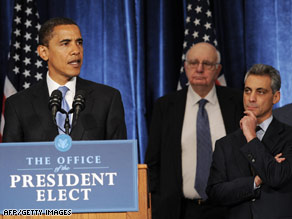Real-time data indicate the U.S. economy continues to deteriorate. Income tax withholdings edged up 0.5% year-over-year in the past two weeks and three days and increased 0.4% year-over-year in the past four weeks and three days. Both of these growth rates are well below the three-month average of 1.4%.
Also,
the TrimTabs Online Job Postings Index plunged 12.3% in the first three
weeks of November to the lowest level since July 2005. Based on our
real-time indicators, we estimate the economy is shedding jobs at a
rate of roughly 350,000 per month.
Some bullish pundits point to growing amounts of cash on the sidelines--a view that has to ignore the shrinkage of equity and real estate assets as well as the drop in household incomes. What is more important is that consumer cash flow has been collapsing as the economy slumps. In the past eight months, TrimTabs Savings and Investment Flow (TTSIF) totaled $37 billion, down 93% from $502 billion from April 2007 through November 2007. Assuming TTSIF from December 2008 through March 2009 is down 50% from the $300 billion savings flow from the same four months of the previous year, TTSIF in the 12 months ended March 2009 would be less than $200 billion, setting a new multi-decade record low.
Special Offer: Gary Shilling was right! The housing market crashed, banks went under and now the government is here to save the day. Think the problems have passed? Think again. Before you invest, click here for strategy and advice to preserve wealth and even profit in A. Gary Shilling's Insight newsletter.
You could do much worse than following Warren Buffett. What is he buying next? Click here to download a brand new free report: "Three Stocks Warren Buffett Would Buy Today." |
The U.S. float was little changed for the third consecutive week, falling $3.5 billion in the holiday-shortened week ended Wednesday, Nov. 26. Corporate buying remained feeble. New cash takeovers rose to a 10-week high of $950 million, while new stock buybacks edged up to a three-week high of $2.0 billion. On the other side of the liquidity ledger, new offerings rose to $450 million, while net insider selling jumped to a 13-week high of $850 million.
Corporate liquidity is worsening worldwide. On the buy side, large takeovers like BHP Billiton/Rio Tinto, Ontario Teachers' Pension Plan/BCE and Panasonic/Sanyo have been called off, and stock buybacks have hit record lows in Europe and Canada. On the sell side, European banks remain desperate for capital. Banks in Japan and Canada, which had been considered immune to credit market problems, have announced large equity offerings.
New stock buybacks have totaled a mere $11.2 billion in November, the lowest since March 2004. Since Bear Stearns imploded in March, buybacks have been below $30 billion in all but two months. Companies are not confident enough about their prospects to commit large amounts of precious cash to share repurchases.

'Business' 카테고리의 다른 글
| Productivity growth better than expected in 3Q (0) | 2008.12.04 |
|---|---|
| Russia Bolsters Domestic Investments (0) | 2008.12.03 |
| Merck Faces Another Tough Year (0) | 2008.12.03 |
| How To Tap And Sustain Entrepreneurial Drive (0) | 2008.12.03 |
| Sneakergate (0) | 2008.12.03 |


 del.icio.us
del.icio.us Digg It!
Digg It! yahoo
yahoo Facebook
Facebook rss
rss







